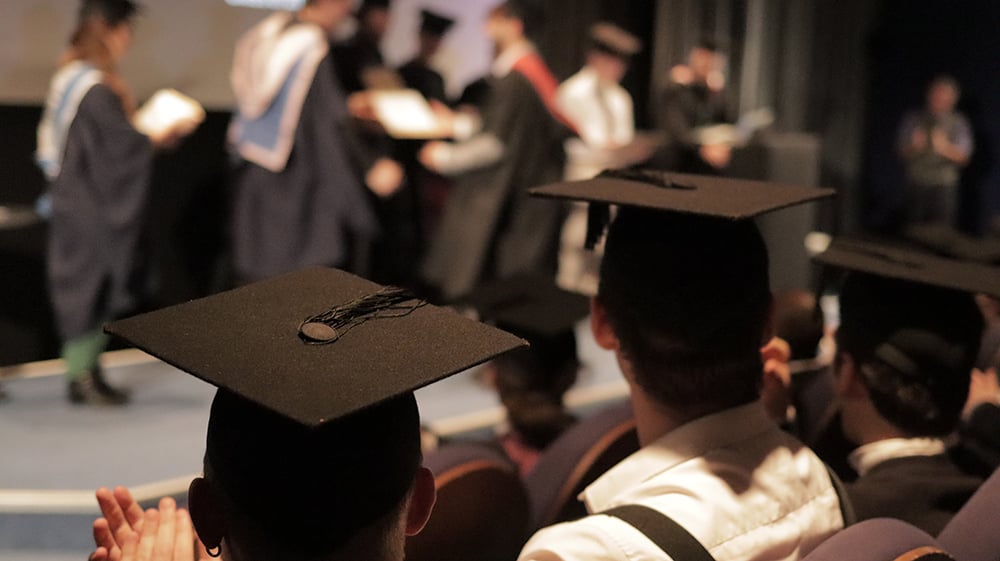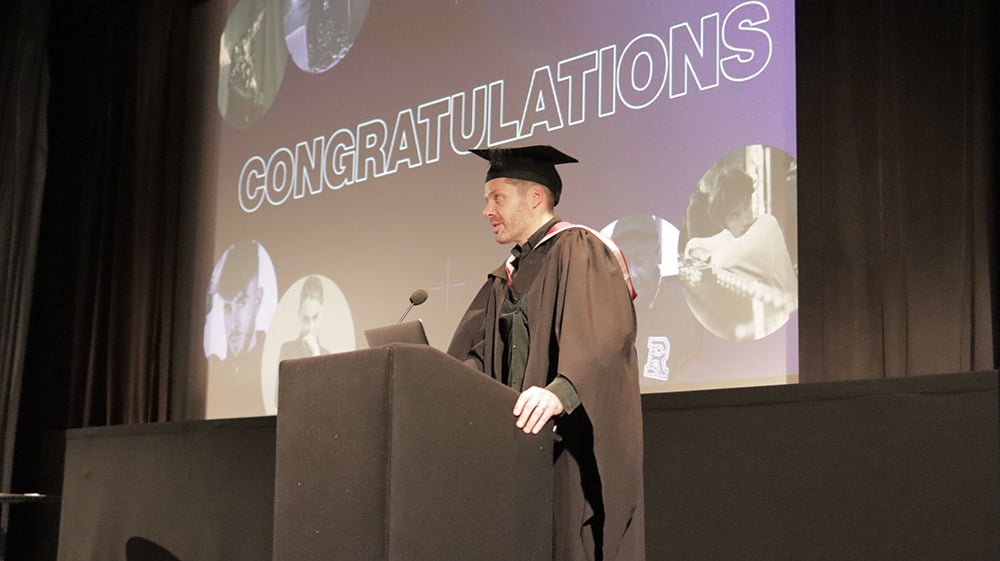Graduates, especially those completing postgraduate degrees, are helping to power the growth within the UK’s creative industries. Find out how here.
Creativity is, by far, the biggest export the UK has to offer to the world. We’re the home of some of the biggest bands, DJs, artists, film directors and actors in history. Our creative industries are a huge part of our cultural heritage, but they also help to power our economy.
Between 2010 and 2022, the creative industries grew by a whopping 50% and in 2022 contributed £124.6bn worth of value to the UK economy. From an employment perspective, the creative industries were one of the fastest to recover following the downturn of the COVID-19 pandemic; in 2022, there were 2.4m filled roles within the sector which was more than 20 times faster than the UK average between 2019 and 2022
The engine that has driven the growth of the creative industries in the UK over decades has been young people leaving university and itching to find work that will stimulate their creativity. 88% of the workforce in the creative industries are under the age of 45, making it one of the ‘youngest’ industries in our economy. Many young people who help push the creative industry forward have done so via the university pathway, and specialist higher education institutes, like dBs Institute, provide a route for people with niche interests and aspirations within the music production and game development wings of the creative industries.

Although many university students finish their education when they get their undergraduate degree, students who pursue postgraduate study and delve much deeper into their area of expertise, develop a level of knowledge through their studies which can help to pave the way for the future of the creative industries. Here, we explore how and why postgraduate students are so important for the continued growth of the creative industries and why you should join this influential cohort at dBs Institute.
One of the many roles universities and higher education institutions play in the growth of the creative industries is to plug skills shortages. Specialist institutes, such as dBs , provide industry-standard and degree-level training in niche areas, which can help to fill skill gaps in the workforce. For example, imagine an start-up game development studio working on their first big project needs a sound designer and audio implementer to provide the sound for their game. As a brand-new organisation, they only have one artist and one developer and neither of them are skilled in the highly specialised area of game sound. At dBs Institute, our MA Game Sound courses produce graduates that can fill that gap, rather than the owners of the game studio needing to go through the long process of up-skilling themselves.
As well as providing plugs for skills gaps at an industry-wide level, universities, higher education institutions and their graduates also have an impact locally. A large percentage of graduates, especially those with postgraduate degrees, tend to stay in the city where they studied. The impact of this retention is that the local industry benefits from fresh cohorts of highly skilled people every year. For cities like Bristol, Manchester and Plymouth, where dBs Institute has its campuses and there are thriving creative industries, our graduates are an incredibly important resource for plugging skills gaps, creating new small businesses to help bolster the industry and developing new ideas that can challenge and disrupt the status quo.

Postgraduate study is the phase of education where students really hone their skills, develop their ideas, master their discipline and work on projects that, in some cases, go on to become the foundation of their careers. This higher level of learning compounds the effects on the local and national creative industries described previously. Graduates of Master’s degrees not only have a larger influence on the organisations and industries they choose to go in to, they also have more earning potential. According to Postgraduate Education in the UK, postgraduates earn, on average, 18% more than those with undergraduate degrees. This also indicates that postgraduates tend to reach more senior positions within the organisations where they work and therefore, help to pave the way for those organisations and the wider creative industries more broadly.
At dBs Institute, we have seen the impact that postgraduates can have on the creative industries first-hand, as many of our Master’s students have gone on to help shape the sectors they have gone to work in.
Dan Legg, a graduate who studied with dBs Institute at our Plymouth campus from Level 2 to his MA Innovation in Sound degree, began building Eurorack modules during his postgraduate course. Since graduating, he has founded Fully Wired Electronics, a modular design and fabrication company that operates in Plymouth but works with clients globally. His company is part of a local cottage industry of Eurorack companies in South Devon which includes dBs Institute lecturer Phin Head’s Stochastic Instruments.
Josh Ball is another graduate from dBs Plymouth and our MA Innovation in Sound course. His company, Flowstate Creative Solutions, builds Max for Live devices which help to improve learning within DAWs like Ableton Live. His forthcoming product, which has received funding from the Arts Council, is ‘tlkbck’, a web application that allows voice control for Ableton Live and provides an accessible way for visually impaired or blind people to produce music.
.jpg?width=1000&height=563&name=Josh%20Ball%20Demoing%20tlkbck%20(smaller).jpg)
Lillie Simpson-Little, a mixed reality programmer who graduated from MA Game Sound works for Zubr. This agency specialises in AR/VR projects and played a key role in the incredible ‘Unlocking the Cage’ project, produced by dBs Pro. Before Zubr, they worked at the world-famous, Bristol-based Aardman animation studio - the creators of Wallace & Gromit.
Benny Turner, a graduate of MA Innovation in Sound at our Bristol campus, used his postgraduate degree to provide an academic backbone to the work he was already doing as the founder of Beat This, a non-profit social enterprise that provides people with complex learning difficulties with the interactive tools to explore their creativity. During his degree, he developed a range of multi-sensory music therapy tools that are accessible and designed to give greater access to music-making for people with complex needs.
Just like these incredible postgraduates from dBs Institute, you can help shape the area of the creative industries that you are interested in by enrolling on a postgraduate course. Doing so will ensure that you have the refined skills to plug existing gaps as well as the tools to build your own enterprise and improve your local city’s creative industries.
Like what you’ve read? Apply for one of our Postgraduate degree programmes today!


